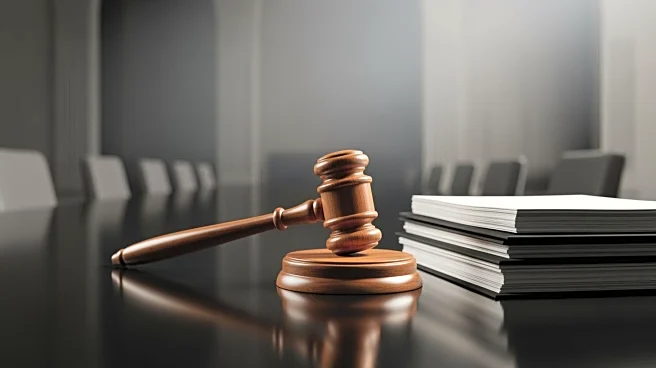What's Happening?
The House of Representatives is experiencing a surge in the use of censure as a disciplinary tool against its members. Historically rare, censure has become more common, with six resolutions introduced this year alone. The censure process involves a member standing
on the floor while the Speaker delivers a televised rebuke. Recent censures have been driven by both criminal investigations and partisan attacks, leading to concerns about the politicization of the process. Notable cases include Rep. Cory Mills, under investigation for campaign finance violations, and Rep. Sheila Cherfilus-McCormick, indicted for allegedly stealing FEMA funds. The increased use of censure has sparked debate among lawmakers about its appropriateness and effectiveness.
Why It's Important?
The frequent use of censure in the House reflects growing political polarization and raises questions about the integrity of congressional disciplinary processes. As censure becomes a tool for political maneuvering, it risks undermining its intended purpose as a serious reprimand for misconduct. This trend could impact the functioning of the House, as members may prioritize political gain over accountability. The situation highlights the need for reform in congressional disciplinary measures to ensure they are used judiciously and maintain their significance. The debate over censure also underscores broader concerns about partisanship and its effects on legislative processes.
What's Next?
Proposals to reform the censure process are being considered, including raising the threshold for censure votes from a simple majority to 60 percent. House Speaker Mike Johnson and Minority Leader Hakeem Jeffries have expressed openness to such changes. The House Ethics Committee continues to investigate members under scrutiny, which may lead to further disciplinary actions. As the debate over censure unfolds, lawmakers will need to balance accountability with the risk of politicization. The outcome of these discussions could shape the future of congressional discipline and influence the political landscape.
Beyond the Headlines
The increased use of censure may have long-term implications for congressional decorum and the public's perception of legislative integrity. As censure becomes a tool for political theater, it could erode trust in the House's ability to self-regulate and hold members accountable. This development may also affect the willingness of members to engage in bipartisan cooperation, as the threat of censure looms over contentious issues. The situation calls for a reevaluation of the role of censure in maintaining ethical standards and fostering a functional legislative environment.















